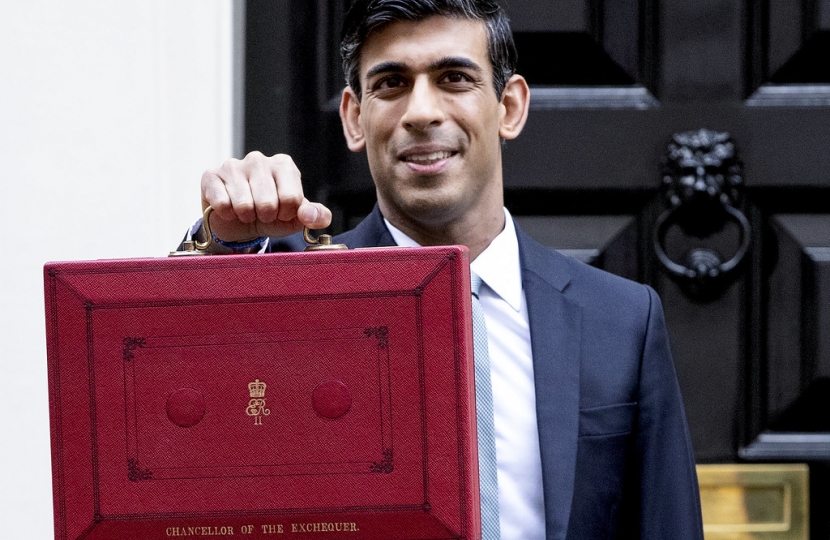
One year ago, this country was in the middle of the biggest recession in 300 years. But thanks to our Plan For Jobs, our economy is recovering faster than expected.
Growth is expected to return to pre-pandemic levels by the end of the year; unemployment is set to be 5.2% rather than the 12% forecast previously; and borrowing is expected to fall to 3.3% of GDP by next year.
This Budget and Spending Review will make a real difference to the people in Daventry, helping working families meet the cost of living, supporting businesses with their recovery and investing in our local public services. I was elected on a promise to level-up and improve opportunities for all of my constituents, and today’s Budget shows how the Government will deliver on this promise, here and across the UK.
I am pleased to see a number of measures that will help low-income families to meet the cost of living, such as:
- A reduction in the Universal Credit taper rate from 63% to 55%
- A rise in the National Living Wage to £9.50/hr
- A freeze in fuel duty for the twelfth year running
- A freeze in alcohol duty and 3% cut in beer duty
- A pay increase for public sector workers
- A new half price rate of Air Passenger Duty for domestic flights within the UK
Businesses will also benefit from new measures, including:
- A 50% cut in business rates next year for 90% of retail, hospitality and leisure firms
- The creation of a new business rates relief, to encourage green technologies and improvements to properties
- The doubling of creative industries tax reliefs for UK theatres, orchestras, museums and galleries
- Reforming the tonnage tax
- Extending business rates relief for all regional airports in England
The budget will deliver stronger public services across all Government departments, through an increase in total departmental spending by £150 billion; the largest real terms increase this century. We will see investments in:
- Health: Spending on health services will increase by £44 billion. We will fund 40 new hospitals, 70 upgrades, 50,000 new nurses and 50 million primary care appointments
- Schools: We are committing another £.7 billion per year by 2024 to bring real terms per pupil spending back to historic 2010 levels
- Children and early years: £300 million will be spent on a new Start for Life programme, offering support to parents and children in the first 1,001 days of their life; and £150 million will be invested in training and development for early years workers
- Crime and justice: We are funding 20,000 new police officers, providing an extra £2.2 billion to courts, prisons and probation services, £500 million to clear court backlogs, and funding programmes to tackle neighbourhood crime, violence against women and girls, and county lines offences
- Local government: Councils will receive an annual grant of £1.6 billion, allowing them to keep council tax at the lowest levels in years
- Housing: We are investing £11.5 billion to build new, affordable homes, the largest cash flow in a decade, £5 billion to remove unsafe cladding, and £1.8 billion to bring 1,500 hectares of brownfield land into use
- Homelessness and rough sleeping: £640 million will be allocated to reducing rough sleeping even further, an 85% increase compared to 2019
- Levelling Up: We are allocating £1.7 billion across the UK, of which £203 million will be spent here in the East Midlands
Other measures that will drive economic growth include:
- Record investment of £100 billion in our roads, railways and broadband
- Supporting innovation through £20 billion spending on R&D
- A huge uplift in skills training through T-levels, Institutes of Technology and apprenticeships
I stood on a manifesto that vowed to spend responsibly, as higher borrowing today just means higher interest rates and taxes in the future. Borrowing has shot up during the pandemic (to the highest levels since WWII), with debt at nearly 100% of GDP. Therefore, I am pleased that the Chancellor has committed to a new Charter for Budget Responsibility, ensuring that:
- Underlying public sector debt at a percentage of GDP must fall
- The government should only borrow to invest in capital projects
We have been forced to make difficult decisions during the pandemic to manage our debt, but I am pleased that we are forecast to meet these rules by 2024. As promised, we will then we able to return to spending 0.7% of our national income on overseas aid.
